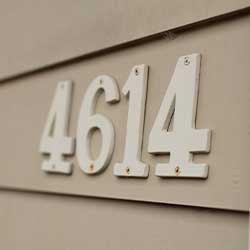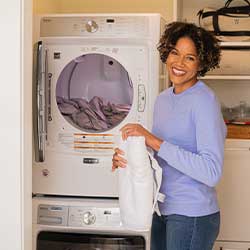High bill? Find out why.
There are different things that could affect how much energy you’re using, ultimately increasing your bill and adding a strain to your monthly budget.
Determine what could be causing an unexpected increase in your energy usage with our tips and tricks below.
Your everyday appliances could be having an impact
Consider these questions to determine appliances that could be adding to your energy usage:
- Have you recently added new appliances like a dehumidifier, a fish tank, medical equipment (oxygen concentrator) or a pool heater to your home?
- Did you recently use a natural gas generator to supply electricity to your home?
- Have you started doing smaller loads/more frequent loads of laundry in your washing machine? Did you previously use cold water and are now using warm or hot water to wash your clothes? Read these laundry tips to save even more money!
- Do you routinely clean out the filter in your dryer and annually clean your vent duct?
- Have you changed from running full loads to partial loads in the dishwasher?
- Are there loose gaskets on your refrigerator or freezer that are allowing cold air to escape, causing the unit to run more often? Have the coils been cleaned regularly? Is your refrigerator more full than usual or your freezer less full than usual?
Appliance checkups keep costs down
Routine checkups are key to keeping costs down. A major appliance starting to go on the fritz will consume more energy since it has to run longer and harder to achieve the same result. Analyze the effects of your home energy use with our HomeCheck® Online assessment.
Replacing older, less-efficient appliances with new, energy-efficient ones can reduce usage. That is unless the old appliance is moved to another area as a backup, such as moving the old fridge to the garage to hold beverages. You can recycle your old, working refrigerator or freezer by scheduling a pickup through our Appliance Recycling program. We’ll pick it up from your driveway, and you will receive a rebate in return.
Business owners, learn about ways you can save energy and operating costs through Small Business Express. See tips for restaurants, retail stores, small offices, convenience stores and more.
Expecting a lower bill after being out of town?
Going on vacation does not greatly impact your bill since larger appliances (refrigerator/stand-alone freezer) and HVAC equipment are usually still running. For example, two weeks away will not reduce your bill by 50%.
Is your hot water heater using more energy?
Does the hot water heater seem to be running more often? A leaking hot water heater or a dripping faucet will cause the heater to kick on frequently, using more energy.
Have you increased the temperature setting on the water heater so it now runs longer than it did before?
Have you checked to make sure the heater is getting the water to the temperature setting? You can compare the temperature setting on your heater to the actual temperature of your water with a thermometer to make sure they match. If the water is not as hot as it should be, this could be an indication the appliance is not working properly.
Do you have a private well?
If yes, have you checked on it lately or had it serviced recently? If not, this should be done as soon as possible.
When you checked on it, was the pump running a lot or sounding loud? This could be an indication the well pump is/was malfunctioning and using more electricity.
Is the weather having an impact?
The weather could impact your energy usage in a few different ways, such as:
- Rates differing between the summer and winter months. In the summer, the cost to produce electricity rises and so does the usage by our customers.
- An increase in precipitation causing your sump pump to run more often.
- Your furnace or air conditioner working harder to keep up with extremely warm or cold temperatures.
Take a look at our summer and winter energy efficiency tips to reduce your energy usage based on how the weather is impacting your home or business.
Keep in mind, every household is different

- Comparing your residence’s utility bill to a neighbor’s utility bill is not helpful. Structures of the same size will differ in consumption and energy charges because of variations in insulation, windows, appliances, maintenance, lifestyles and family size.
- In multi-unit buildings, size of unit, floor plan, number of windows, tree coverage, which floor the unit is on, age of appliances, resident’s lifestyle and the number of people living in the unit all will cause differences in bills between the residents. Occupancy in the units around you can impact energy efficiency:
- Vacant units below you can increase your bill in the summer as heat rises.
- Vacant units below you in the winter can increase your bill as you are not getting the benefit of the heat rising.
- Guests staying in your home usually leads to more cooking and more showers. More energy usage can also come from them needing to charge their own electronics.
- Students coming home from college can increase usage when they open up the refrigerator, use the TV, adjust the thermostat, do more loads of laundry and take more showers more often.
- Working and attending school from home can increase your energy usage for a variety of reasons. See some of our tips for cutting this extra usage.
- Also consider whether there may have been an adjustment to your bill or an amount increase in your Budget Billing calculation.
